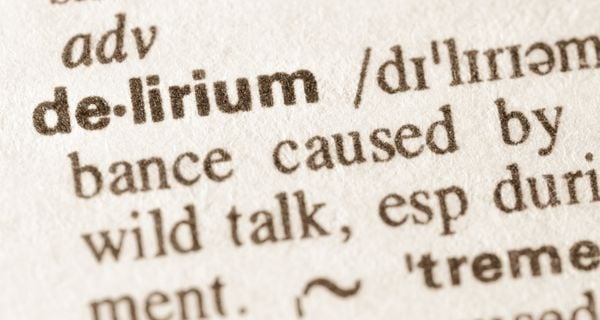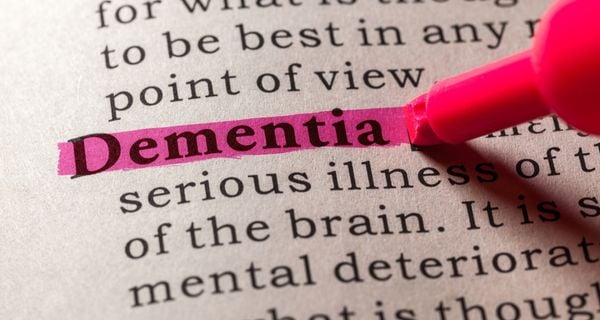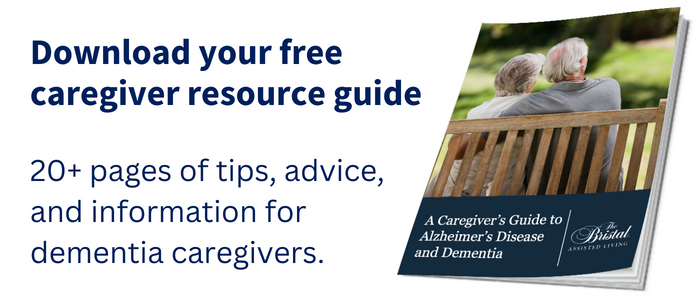Delirium is common in older adults — especially among those who are hospitalized. The rapid deterioration in attention and cognition associated with delirium may cause family members to worry their loved one is developing Alzheimer’s disease or dementia. Although the symptoms are similar, delirium and dementia aren’t the same.
In this blog, find the similarities and differences between delirium and dementia.
What Is Delirium?

Delirium involves a serious and often unexpected change in cognition that develops over a few hours to a few days. People diagnosed with delirium may become confused and disoriented in their surroundings. They may also have trouble communicating and exhibit significant changes in behavior and mood.
There are multiple reasons why someone might develop delirium. Once diagnosed, most cases can be fully resolved. Causes of delirium may include:
- Low sodium, low calcium, or other ongoing imbalances
- Medication side effects
- Pre-existing cognitive impairment, including dementia or Alzheimer’s disease
- Alcohol or drug use or withdrawal
- Surgery
- Hospitalization
- Infection
- Sleep deprivation
How Is Dementia Different From Delirium?

Dementia is a general term used to describe a memory-related cognitive impairment. Dementia causes a loss of memory, language, and problem-solving abilities that interferes with daily life and grows progressively worse. Alzheimer’s disease is the most common type of dementia.
The cognitive decline associated with dementia is typically gradual and caused by the damage done to brain cells. It isn’t unusual for someone living with Alzheimer’s to notice symptoms of the disease over several months or even years.
A person experiencing delirium may notice similar cognitive changes but the symptoms typically appear more quickly. People living with Alzheimer’s can also experience episodes of delirium, but there are differences between the two conditions. Keep in mind that being diagnosed with delirium doesn’t necessarily mean your loved one will also develop dementia.
Here are additional ways dementia and delirium differ:
- Focus - In the early stages of dementia, people tend to remain generally alert and can maintain focus. Those with delirium have difficulty staying on one task or topic and may become distracted quickly.
- Duration - Symptoms of dementia, particularly memory and thinking skills, tend to stay fairly consistent. Delirium symptoms, however, can change quickly throughout the day or over several days.
- Prognosis - Although medications and some lifestyle changes can help slow the onset of dementia, the condition generally can’t be reversed. For example, people living with Alzheimer’s disease progress through the stages of cognitive decline that currently isn’t curable. However, delirium is usually reversible and sometimes preventable.
Related: Coping with an Alzheimer’s or Dementia Diagnosis >>
How Does Hospitalization Influence Delirium?

Another risk factor for developing delirium, especially if the patient has dementia, is any type of hospitalization, including an emergency room visit to a stay in an intensive care unit (ICU). Patients that have experienced delirium in the past are also at risk of developing delirium.
Patients who require a breathing machine while in the ICU may experience delirium. This may be caused by lower oxygen levels, the brain’s inability to use oxygen, certain medications, severe pain, or chemical changes in the brain.
There are several steps a caregiver can take to help a hospitalized loved one recover from delirium, or possibly even prevent its onset. Here are a few recommendations from Vanderbilt University Medical Center to help orient the patient:
- Speak in a calm, quiet voice using simple words or phrases.
- Remind your loved one of the day and date.
- Talk about family and friends.
- Make sure they have their glasses and hearing aids, if applicable.
- Decorate their room with familiar photos and other items from home.
- Play their favorite music or TV shows.
If you notice signs of delirium in yourself or a loved one, speak with your physician immediately. Early diagnosis and treatment can help resolve the condition more quickly.
Download Your Free Caregiver Resource Guide
Find more information and tips for caregivers in our free resource, A Caregiver’s Guide to Alzheimer’s Disease and Dementia. This guide includes more than 20 pages of information to help you prepare and care for a loved one living with Alzheimer’s or dementia.



